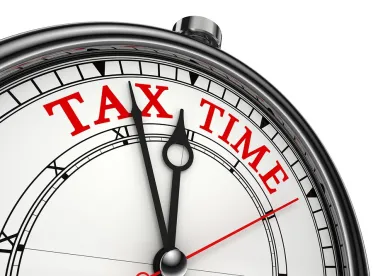Under the Tax Cuts and Jobs Act of 2017, the new Section 163(j) generally limits a taxpayer’s deduction of any business interest expense to 30% of the taxpayer’s adjusted taxable income (ATI) plus the taxpayer’s business interest income. However, certain real estate and farming businesses are permitted to make an irrevocable election to avoid the application of the Section 163(j) limitation. The trade-off is that if a taxpayer makes an election, the taxpayer is required to use the Alternative Depreciation System (ADS) cost-recovery lives for non-residential real property, residential rental property, and qualified improvement property. In addition to the longer cost-recovery lives, a taxpayer cannot claim bonus depreciation on any assets depreciated under the ADS method.
For taxable years beginning in 2019 (excluding partnerships) and 2020 (including partnerships), the Coronavirus Aid, Relief, and Economic Security Act (CARES Act) increases the Section 163(j) limitation from 30% of ATI to 50% of ATI for the year. For partnerships, the new 50% increased limitation generally applies only beginning in 2020, although 50% of the disallowed business interest expense in 2019 allocated to partners will be eligible for deduction at the partner level in 2020 without any limitation. The increased ATI limitation could also result in an increased net operating loss (NOL) for the relevant year. See our tax alert on the IRS’s guidance under the CARES Act for taxpayers with NOLs.
In addition, the CARES Act also fixes a technical glitch related to the qualified improvement property, making it eligible for a 100% first-year bonus depreciation retroactive to Jan. 1, 2018, through 2022. As a result, some businesses that made an irrevocable election to avoid the application of the Section 163(j) limitation may consider annulling their election, to claim the benefit of a 100% bonus depreciation for qualified improvement property and a higher business interest deduction limitation.
Rev. Proc. 2020-22 provides an opportunity for taxpayers who wish to withdraw their prior election to benefit from the technical correction related to the qualified improvement property. Rev. Proc. 2020-22 also provides an automatic extension for certain real property trade or businesses or farming businesses to elect out of the Section 163(j) limitation. Thus, real property and farming businesses can reassess their prior tax positions with respect to the Section 163(j) limitation to boost their liquidity.
Specific Provisions of Rev. Proc. 2020-22
Procedure to withdraw a prior election or extend the time to file to an election to avoid the Section 163(j) limitation
A taxpayer that wishes to withdraw the application must timely file an amended federal income tax return, amended Form 1065, or AAR, as applicable, for the year in which the election was made, and attach an election withdrawal statement. The amended return must be filed by the earlier of Oct. 15, 2021, or the date on which the statute of limitation expires for the taxable year for which the amended return is being filed. Partnerships subject to the centralized partnership audit regime enacted as part of the Bipartisan Budget Act of 2015 (BBA partnership) that choose not to file an amended return as permitted by Rev. Proc. 2020-23, may file an administrative adjustment request (AAR) by the earlier of Oct. 15, 2021, or the applicable period of limitations on making adjustments under section 6235 for the reviewed year.
The amended federal income tax return, amended Form 1065, or AAR, as applicable, must also provide the adjustment to taxable income for the withdrawn election and any collateral adjustments (including recalculation of depreciation for affected properties) to taxable income or tax liability for the amended year or any succeeding affected taxable years. Similar to the procedure to withdraw, a taxpayer may make an application to elect out of the Section 163(j) limitation for the taxable year by filing an amended federal income tax return, amended Form 1065, or AAR, as applicable, for the year in which the election was made, and attach an election statement in accordance with the rules and procedures contained in proposed Treas. Reg. § 1.163(j)-9.
To reflect the adjustments in the subsequent years due to the withdrawal of a prior election or the late election in a prior year, returns for such subsequent years must also be amended.
Procedure to file elections under other provisions of the CARES ACT
Rev. Proc. 2020-22 also describes the time and manner in which certain taxpayers can elect (1) out of the higher 50% ATI limitation for taxable years beginning in 2019 and 2020, (2) to use their 2019 ATI to compute their business interest expense limitation in 2020 (may be beneficial if the 2019’s ATI is higher than the 2020’s ATI), and (3) out of deducting 50% of a partnership’s disallowed business interest expense at the partner level for taxable years beginning in 2020 without limitation.
Taxpayers intending to make these elections must carefully consider the collateral tax consequences. The procedure for making these elections has not been discussed in this alert.




 />i
/>i

